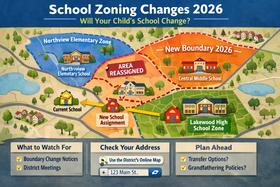For the 2025-26 school year, there is 1 public school serving 190 students in Reeds Creek Elementary School District. This district's average testing ranking is 4/10, which is in the bottom 50% of public schools in California.
Public School in Reeds Creek Elementary School District have an average math proficiency score of 22% (versus the California public school average of 34%), and reading proficiency score of 37% (versus the 47% statewide average).
Minority enrollment is 21% of the student body (majority Hispanic), which is less than the California public school average of 80% (majority Hispanic).
Overview
This School District
This State (CA)
# Schools
1 School
10,357 Schools
# Students
190 Students
5,825,514 Students
# Teachers
10 Teachers
267,966 Teachers
Student-Teacher Ratio
19:1
19:1
Student By Grade
District Rank
Reeds Creek Elementary School District, which is ranked #1192 of all 1,908 school districts in California (based off of combined math and reading proficiency testing data) for the 2022-2023 school year.
Overall District Rank
#1159 out of 1932 school districts
(Bottom 50%)
(Bottom 50%)
Math Test Scores (% Proficient)
22%
34%
Reading/Language Arts Test Scores (% Proficient)
35-39%
47%
Science Test Scores (% Proficient)
20-29%
29%
Students by Ethnicity:
Diversity Score
0.35
0.63
% American Indian
2%
1%
% Asian
1%
12%
% Hispanic
12%
56%
% Black
n/a
5%
% White
79%
20%
% Hawaiian
n/a
n/a
% Two or more races
6%
6%
All Ethnic Groups
District Revenue and Spending
The revenue/student of $12,368 in this school district is less than the state median of $19,979. The school district revenue/student has grown by 5% over four school years.
The school district's spending/student of $11,747 is less than the state median of $18,400. The school district spending/student has grown by 5% over four school years.
Total Revenue
$2 MM
$116,387 MM
Spending
$2 MM
$107,188 MM
Revenue / Student
$12,368
$19,979
Spending / Student
$11,747
$18,400
Best Reeds Creek Elementary School District Public Schools (2025-26)
School
(Math and Reading Proficiency)
(Math and Reading Proficiency)
Location
Quick Facts
Rank: #11.
Reeds Creek Elementary School
(Math: 20-24% | Reading: 35-39%)
Rank:
Rank:
4/
Bottom 50%10
18335 Johnson Rd.
Red Bluff, CA 96080
(530) 527-6006
Red Bluff, CA 96080
(530) 527-6006
Gr: K-8 | 190 students Student-teacher ratio: 19:1 Minority enrollment: 21%
Frequently Asked Questions
How many schools belong to Reeds Creek Elementary School District?
Reeds Creek Elementary School District manages 1 public schools serving 190 students.
What is the rank of Reeds Creek Elementary School District?
Reeds Creek Elementary School District is ranked #1192 out of 1,908 school districts in California (bottom 50%) based off of combined math and reading proficiency testing data for the 2022-2023 school year.
What is the racial composition of students in Reeds Creek Elementary School District?
79% of Reeds Creek Elementary School District students are White, 12% of students are Hispanic, 6% of students are Two or more races, 2% of students are American Indian, and 1% of students are Asian.
What is the student/teacher ratio of Reeds Creek Elementary School District?
Reeds Creek Elementary School District has a student/teacher ratio of 19:1, which is lower than the California state average of 22:1.
What is Reeds Creek Elementary School District's spending/student ratio?
The school district's spending/student of $11,747 is less than the state median of $18,400. The school district spending/student has grown by 5% over four school years.
Recent Articles

Public School Open House & Enrollment Season Guide for Parents
Learn what to ask at a public school open house during enrollment season, from academics to safety, to choose the right school for your child.

School Zoning Changes 2026: How Assignments May Shift
School Zoning Changes 2026 could affect your child’s school assignment. Learn how zoning works, what is changing, and how families can prepare.

School Vouchers: Updated Pros and Cons (2025 Review)
Comprehensive 2025 analysis of school vouchers, weighing benefits and challenges for families, funding, outcomes, and policy directions.





